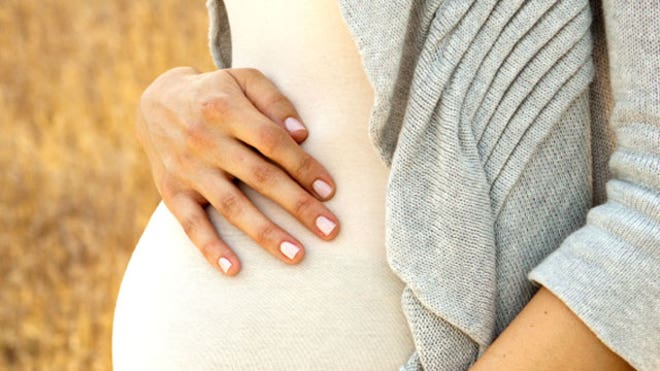
Women who have children in their 30s and 40s may have a decreased risk of endometrial cancer, which develops in the lining of the uterus, according to a new study.
Women who give birth over age 40
 were 44 percent less likely to have the cancer than women whose last birth occurred at or before age 25, the researchers found.
were 44 percent less likely to have the cancer than women whose last birth occurred at or before age 25, the researchers found.For women whose last birth occurred between ages 35 to 39, the risk decreased by 32 percent, and for women who last gave birth between ages 30 and 34, their risk decreased by 17 percent, compared to those who delivered their last baby by age 25.
The effect was seen even as the women aged, showing that the "protection persists for many years,” said author Wendy Setiawan, a professor of preventive medicine at the University of Southern California's Keck School of Medicine.
The researchers reviewed data from 17 studies involving 8,671 women with endometrial cancer and 16,562 women without the disease. They looked at how childbearing affected women's cancer risk, and accounted for other variables known to affect risk, such as contraception use and number of children.
Researchers aren't sure exactly why the later childbearing may affect endometrial cancer risk. Setiawan said it may be that hormone levels during pregnancy are beneficial in preventing cancer at older ages. Giving birth may rid the uterus of cancer-causing cells, she said, or it could be that women who are able to become pregnant later in life have healthier uteruses to begin with. [Best Age to Raise Kids? Older Parents Say 30s
 ]
]The research adds to studies looking at health effects of later childbearing. Late childbearing has been linked with a higher likelihood of delivering a smaller baby, and more complications during late pregnancy and childbirth. Studies have also shown that women who give birth to their first child at later ages have increased risks of ovarian cancer
 and breast cancer
and breast cancer .
.About 47,000 U.S. women will be diagnosed with endometrial cancer in 2012, and 8,000 will die of the disease this year, according to the National Cancer Institute.
The study was published online July 23 in the American Journal of Epidemiology.
0 comments:
Post a Comment